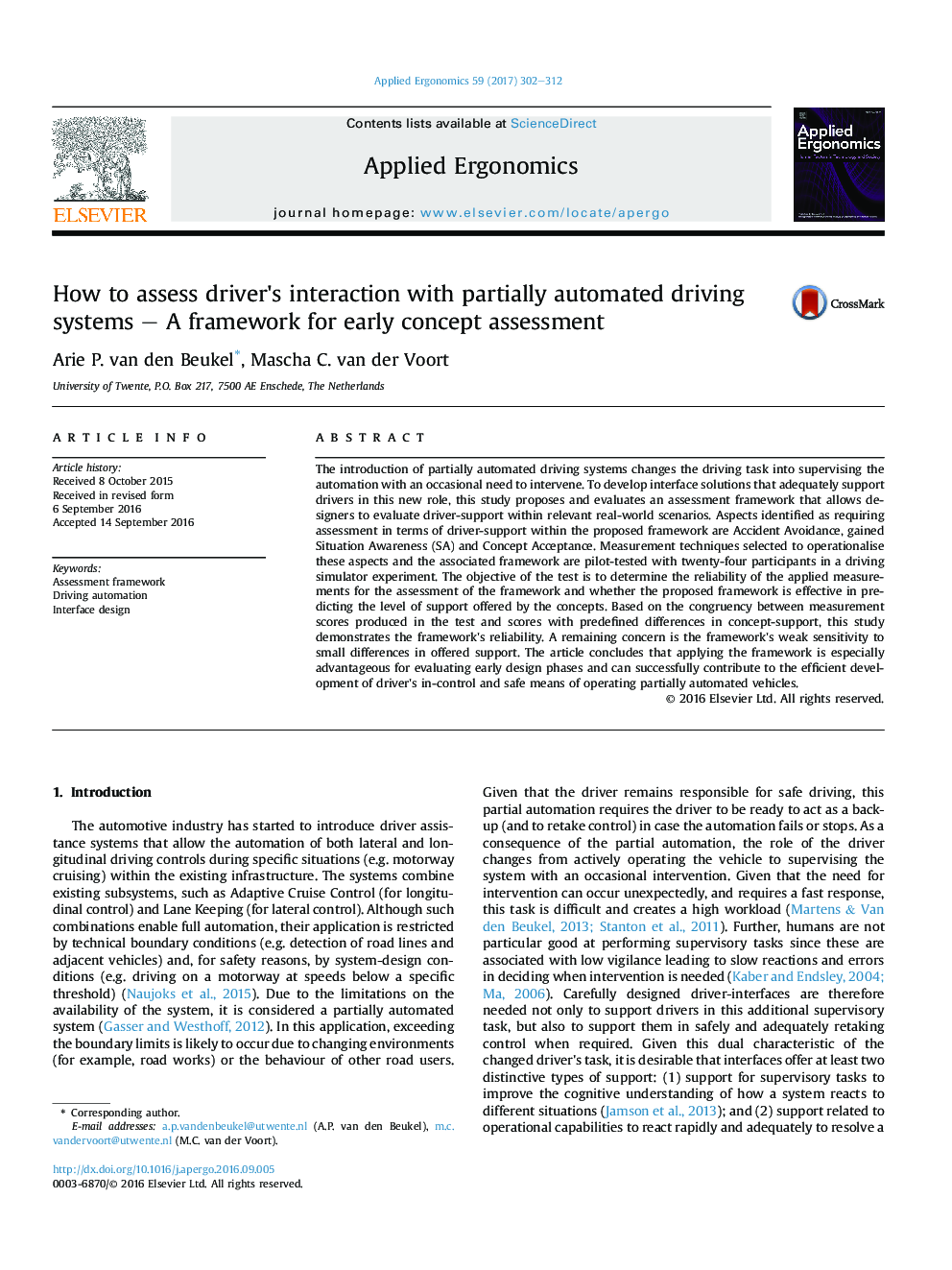| Article ID | Journal | Published Year | Pages | File Type |
|---|---|---|---|---|
| 4972180 | Applied Ergonomics | 2017 | 11 Pages |
Abstract
The introduction of partially automated driving systems changes the driving task into supervising the automation with an occasional need to intervene. To develop interface solutions that adequately support drivers in this new role, this study proposes and evaluates an assessment framework that allows designers to evaluate driver-support within relevant real-world scenarios. Aspects identified as requiring assessment in terms of driver-support within the proposed framework are Accident Avoidance, gained Situation Awareness (SA) and Concept Acceptance. Measurement techniques selected to operationalise these aspects and the associated framework are pilot-tested with twenty-four participants in a driving simulator experiment. The objective of the test is to determine the reliability of the applied measurements for the assessment of the framework and whether the proposed framework is effective in predicting the level of support offered by the concepts. Based on the congruency between measurement scores produced in the test and scores with predefined differences in concept-support, this study demonstrates the framework's reliability. A remaining concern is the framework's weak sensitivity to small differences in offered support. The article concludes that applying the framework is especially advantageous for evaluating early design phases and can successfully contribute to the efficient development of driver's in-control and safe means of operating partially automated vehicles.
Related Topics
Physical Sciences and Engineering
Computer Science
Human-Computer Interaction
Authors
Arie P. van den Beukel, Mascha C. van der Voort,
